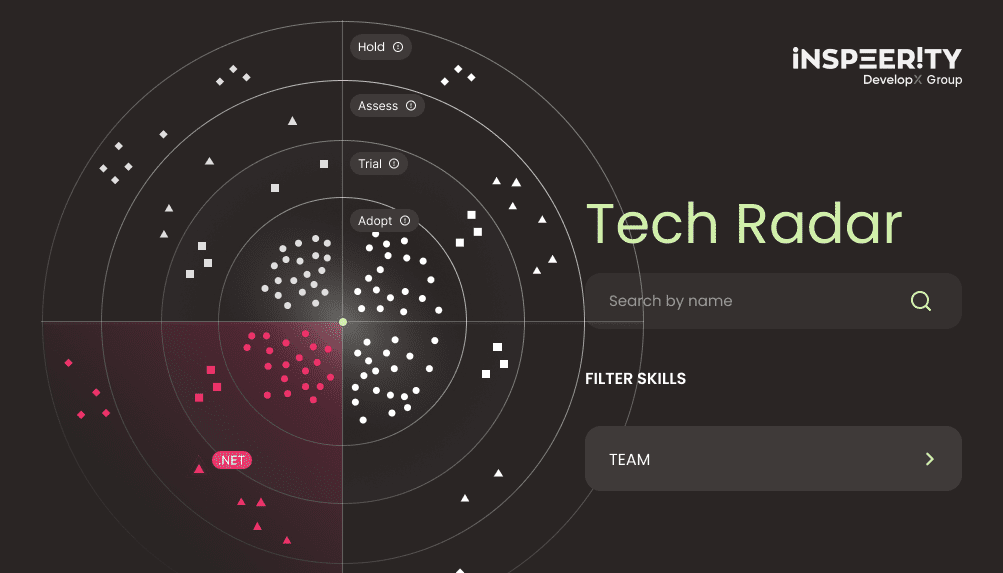Recently I was in CloudFest, Germany. Conferences like this are always a great way to meet new people and to answer questions about Inspeerity. But there was a running theme, most questions were related to concerns about working with offshore software development companies.
This got me thinking, and the result was this blog. I wanted to share some advice, techniques, and tips. And hopefully, answer some questions about how to best collaborate with an offshore software company. As well as sharing some practices that have worked for us.
Today I will address areas related to
- Quality control
- Project timelines
- Project Management Methodologies
- Conflict resolution
- Protecting your IPR
Table of contents:
- Overcoming concerns in offshore software development
- Addressing quality concerns in offshore software development
- Setting realistic timelines in offshore development
- Harnessing agile for effective offshore project management
- Take a proactive approach to conflict resolution
- Addressing IP rights in offshore partnerships
- Overcoming offshore challenges
- Establish clear quality standards and communicate them to the offshore team. Nothing is lost by setting out what you expect from the beginning. You shouldn’t start any project without a clear understanding of what will be delivered. To escape later problems, decide on the project’s core features and concentrate on them.
- Provide training and support to offshore team members to ensure they understand the quality standards and can meet them. In some projects, we start with onboarding, where our partners have a presentation. Similarly, to how you would introduce new employees to your business. It doesn’t detract from the project’s start and setting out key practices can help get the project rolling as people learn how to work together.
- Conduct regular quality checks to ensure the offshore team is meeting the required standards. No one really enjoys having someone looking over their shoulder but by taking an active role in meetings and information-sharing sessions you can get a better understanding of where the project is. Because we work to agile methods, we work in two-week sprints. And at the end of this, we have a retrospective to discuss the project.
- To get the most out of your relationship, foster open communication between you and the offshore team to make sure any areas of concern can be addressed quickly. You can discover more about the leadership strategies we use to improve our team’s performance here. In short, take the time to join in on the update meetings to keep track of the project.
- Set clear project timelines and communicate them to the offshore team. Decide on the scope of work in the early stages. Remember any changes in the production cycle will take longer to implement and lengthen the delivery time. When the roadmap is being created, make sure to set realistic timelines. Tech leads are very careful about providing estimations, especially when they don’t have the full requirements in place.
- Prepare as much as you can for the first stages, and communicate your ideas fully to the development team. If you are looking for advice, here are some tips on how to prepare for the discovery meeting.
- Establish milestones and checkpoints to track progress and ensure the project stays on schedule.
- Use project management tools to track progress and identify delays. Different software houses have different tools, for us at least that’s Jira. Often this is for the development team to track what is happening and not for the client. The Key Account Manager will be your point of contact, letting you know about any issues.
- Agile methodology has its advantages when designing software. This approach emphasizes flexibility, adaptability, and collaboration, making it ideal for working with offshore teams. But how do you know if Agile is right for your project?
- Foster open communication and collaboration to identify conflicts and resolve them promptly.
- Establish clear conflict resolution processes and communicate them to the offshore team.
- Focus on finding mutually beneficial solutions to conflicts rather than winning an argument or proving a point.
- Intellectual property protection: Your intellectual property is protected and you have the right to use the software developed by offshore teams.
- Security and privacy: Offshore teams follow proper security protocols and protect sensitive data.
- Legal and regulatory compliance: Different countries have different legal systems, and this can cause issues.
Overcoming concerns in offshore software development
The main concerns I heard were about quality and issues directly related to the software process. Often, companies who cooperate with vendors shared their most common issues relating to project timelines, project management, and resolving conflict. Here I wanted to briefly explain some of these concerns and share my advice on how to address them:
Addressing quality concerns in offshore software development
The quality of the code is important, it can affect the long-term goals of the project, impacting areas around scalability. So, making sure the quality of your final product is where it needs to be is vital. To ensure quality I would recommend the following steps.
Quality-first onboarding
For us, at least, quality starts earlier in the process. We prioritize quality during onboarding, carefully selecting candidates based on technical skills, attitude, work approach, language, and communication abilities. We provide mentors, weekly meetings, learning resources, and conferences to foster growth. Our projects encourage collaboration between senior and junior colleagues for knowledge transfer and code quality. Our QA team conducts manual and automated tests for integration and end-to-end testing.
Setting realistic timelines in offshore development
Another concern that I heard, was related to timelines. How do you make sure a project run by an offshore team stays on track? There are a few things to consider.
Tailoring solutions through careful planning and discovery
When it comes to project timelines, we prioritize careful planning when starting new projects. To fully understand a customer’s needs we start the project with a discovery phase. During this phase, we engage in face-to-face meetings or calls to discover the project’s goals, business context, and technical requirements. We know that every customer and project is unique, and our team customizes the solutions accordingly. Our aim is to understand the value and necessity of each feature, proposing and delivering a customized, best-fit solution aligned with your current and future business needs, while staying within your budget.
You can learn more about how we build teams around your project by reading Successful Partnership From First Meeting to the Right Software Solution.
Harnessing agile for effective offshore project management
Effective project management is critical when working with offshore teams. Often, how an offshore company works is down to its own approach. A lot of offshore development software companies favor working with Agile, and we’re no exception.
Our projects follow Agile principles. This involves daily team calls, sprint planning meetings, refinement sessions for task details, retrospective meetings for process improvements, and demo meetings at the end of each sprint. Our clients are welcome to attend all these meetings. For higher-level management meetings, we typically hold status meetings every week or two to track progress and discuss performance, improvements, and suggestions.
Take a proactive approach to conflict resolution
Disagreements and conflicts can arise during a project. Companies can use the following approach to resolve conflicts:
Open communication and regular status meetings should prevent conflict, but when it happens, you need to talk directly with the offshore team to see how they see it. Most conflicts arise where there is no feedback loop in place. So that’s the first step to resolving conflict. Making sure there’s a clear channel for communication.
And finally,
Be open about your problems. Make sure to be ready to talk through and discuss your issues.
Addressing IP rights in offshore partnerships
Another major concern I heard was related to IP rights, there was a concern that working with an offshore partner would cause issues around IPR. This concern can be broken down into three main areas.
To begin, as a European company, most advice is based on European laws. I would always research any laws relating to copyright before signing a contract.
In short, during the software development process, ownership and transfer of code are determined through contract negotiations. The moment of transfer (transfer of ownership) is specified in the contract and varies depending on the project type, work schedule, and code creation timeline. Once the transfer date is confirmed, ownership rights are transferred to the customer.
The most important piece of advice I can share here is to set out ownership rules during the early contact negotiations.
Overcoming offshore challenges
Working with an offshore software development company shouldn’t raise any more issues than working with an onshore alternative. There are a lot of benefits to working with an offshore company. Making sure you pick the right partner is the best way of avoiding a lot of issues. But if you do ever find yourself in a difficult situation, having the right strategies in place will help you to address them.
By taking a proactive approach to address quality, project timelines, project management methodologies, conflict resolution, and intellectual property protection, you can navigate any problems successfully.
These strategies, coupled with effective communication and collaboration, lay the foundation for successful software development projects.
If you want to learn more about the benefits of working with an offshore software company, please reach out to me.




